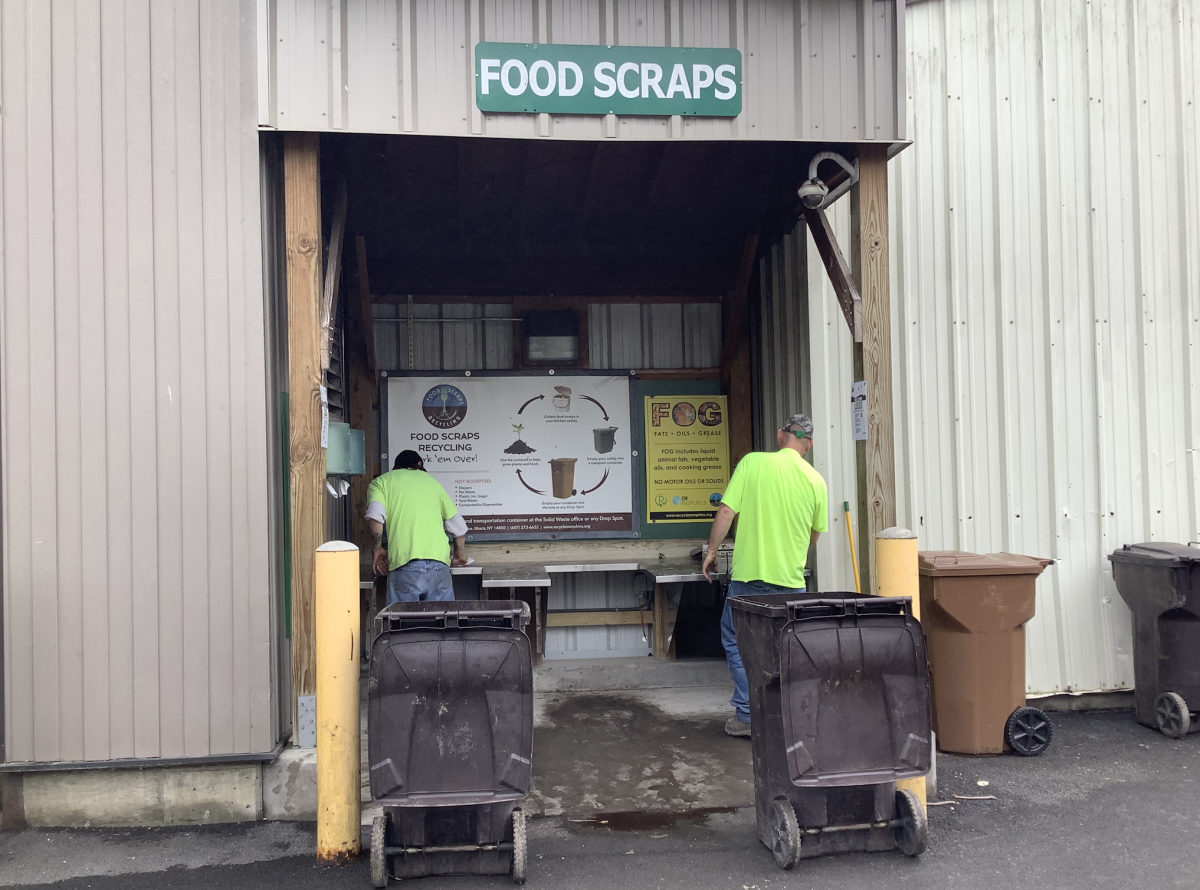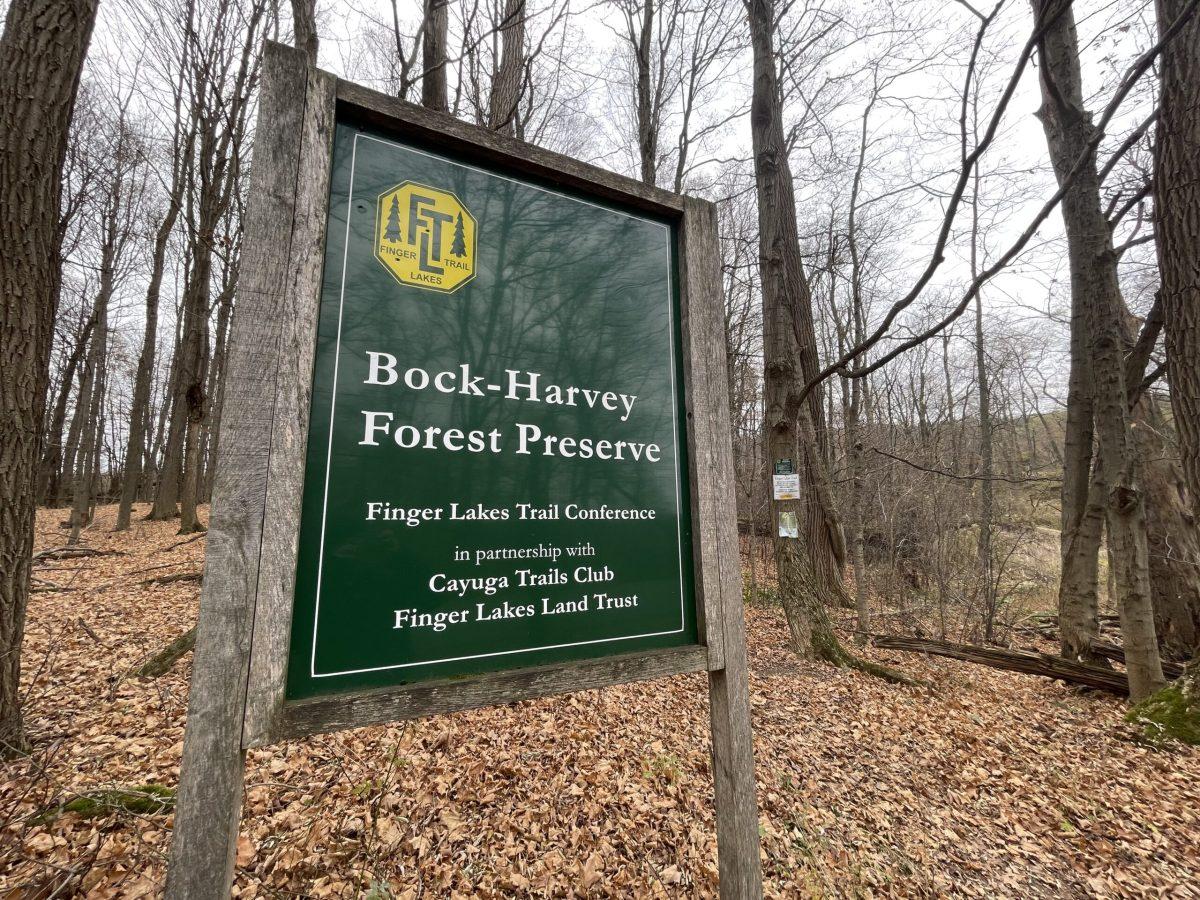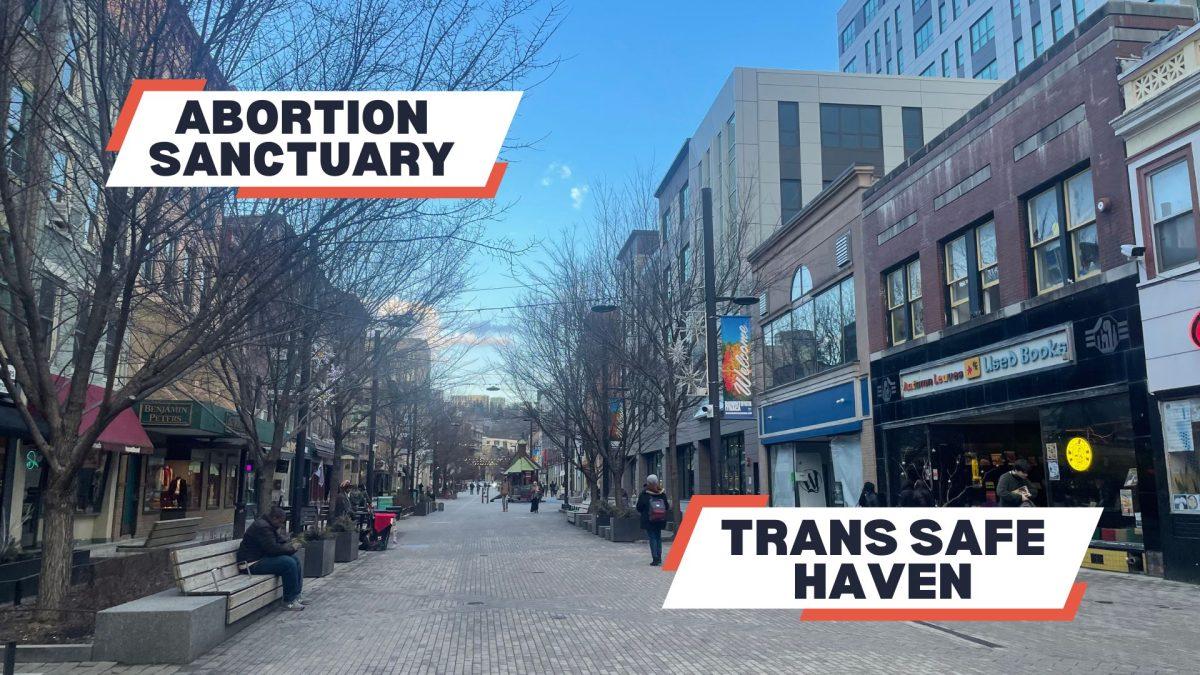
Sylvia Chamberlain, an unhoused resident of Ithaca, was staying in the encampment behind the Warehouse Carpet Outlet, a location she and others commonly refer to as Jungle #1. Chamberlain said she was under the impression she had to relocate to another site due to a notice of violation from the county’s health department.
“It’s just a pain to move really,” Chamberlain said. “Some people have this crazy idea that somehow social workers are supposed to manage or police this.”

She said she moved to Ithaca from Texas after multiple deaths in her family and after her partner of 15 years died.
“Everyone here has trauma,” Chamberlain said. “For me, I don’t want to be here. I want to do something else, maybe come back and advocate.”
Notice of violation
Tompkins County Health and the Environmental Health Division cited the city with a notice of violation April 9. The violation was due to the buildup of waste and hazardous materials like propane tanks, needles and trash overflowing into the water. The citation requires the city come up with a plan by May 10 that includes a timeline of cleanup and methods to prevent the property from becoming an environmental health violation again. There is no financial sanction resulting from the citation.
The notice of violation was first publicly announced April 10 during the Common Council Special Topics Work Session by City Manager Deb Mohlenhoff.Mohlenhoff said the city will be working directly with the railroad’s property owners to follow the requirements given by the county to amend the citation.
“To our knowledge, there wasn’t anyone living there at the time,” Mohlenhoff said. “We made repeated visits to the area as well as notified support service age

ncies of the notice of violation and the need to clean up that location.”
The property along the railroad tracks behind the Warehouse Carpet Outlet is jointly owned by the city and Watco. This area, which has been used as a camping ground for houseless residents of Ithaca, has been the topic of many conversations in local government due to the w
aste and number of people without housing and other resources. This location is one of several encampments in the city; the other well-known area being the property behind Walmart.
“We have been in many ongoing conversations with the County about a human-centered response to encampment management,” Mohlenhoff said. “The city only has so many tools in our toolbox — we do not have any departments that have the needed supportive services, but our approach to land management is just one piece of a large
r coordinated effort.”
During the April 10 meeting, Michael Thorne, superintendent of Public Works, said much of the debris is in the water, which will require a permit from the New York State Department of Environmental Conservation.

Why now?
Elizabeth Cameron, director of environmental health for the county, said the county has been monitoring the situation for quite a while. She said the notice of violation was given now because of policies developed by the city.
The city developed a pilot policy for managing homeless encampments in September 2023 and a response protocol for unsanctioned encampments in December 2023, which offered a stepping off point to address the issues on this specific property.
“We were giving people time to come up with solutions,” Cameron said. “They came up with solutions for the camping aspect and we are now focused on some of those other areas and those public health nuisances or hazards. So, it was after the city took those actions that we looked at what the other concerns were.”
Cameron said the notice of violation does not have any requirements related to the people using the property because the Environmental Health Division does not have authority there. She said it is up to the city to decide how it wants to address the cleanup.
“Our action is not targeted at the people on the property, it is at the refuse,” Cameron said. “There is stuff getting into the creek. … The city needs to develop a plan for how to clean up the property and that will need to address the people there but that is not a requirement on [the county’s] part.”


















